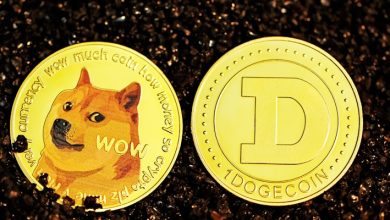Chainlink: The Role of Oracles in Connecting Smart Contracts

- Understanding the concept of Oracles in blockchain technology
- The importance of Oracles in enabling smart contracts to interact with external data
- Chainlink: A decentralized network for reliable Oracles
- How Chainlink ensures data integrity and security in smart contracts
- Real-world applications of Chainlink Oracles in various industries
- The future of smart contracts and Oracles in the blockchain ecosystem
Understanding the concept of Oracles in blockchain technology
Oracles play a crucial role in blockchain technology by acting as a bridge between smart contracts and real-world data. They are essential for enabling smart contracts to interact with external sources of information, such as APIs, IoT devices, and traditional databases. Oracles function by fetching and verifying off-chain data before feeding it into the blockchain for smart contract execution.
Oracles are designed to ensure the accuracy and reliability of the data they provide to smart contracts. They use a variety of mechanisms, such as data aggregation, consensus algorithms, and reputation systems, to prevent tampering or manipulation of information. This helps to maintain the integrity of the blockchain network and ensures that smart contracts can execute as intended.
One of the key challenges with oracles is the issue of trust. Since they rely on external data sources, there is always a risk of data manipulation or inaccuracies. To address this, blockchain projects like Chainlink have developed decentralized oracle networks that leverage multiple independent oracles to fetch and verify data. This decentralized approach helps to enhance security and reliability by eliminating single points of failure.
By understanding the concept of oracles in blockchain technology, we can appreciate their importance in enabling the full potential of smart contracts. They serve as the critical link between blockchain networks and the real world, allowing for a wide range of applications, from decentralized finance to supply chain management. As blockchain technology continues to evolve, the role of oracles will become even more significant in ensuring the seamless integration of on-chain and off-chain data sources.
The importance of Oracles in enabling smart contracts to interact with external data
Oracles play a crucial role in enabling smart contracts to interact with external data, allowing them to access real-world information and trigger actions based on that data. Without oracles, smart contracts would be limited to operating solely on the data within the blockchain, restricting their functionality and real-world application.
By connecting smart contracts to off-chain data sources through oracles, developers can create decentralized applications that can respond to real-time events, such as market prices, weather conditions, or sports scores. This opens up a world of possibilities for smart contract use cases, including decentralized finance, supply chain management, insurance, and more.
Chainlink is a leading provider of decentralized oracles, offering a secure and reliable way for smart contracts to access external data. Through Chainlink’s decentralized network of oracles, smart contracts can leverage a wide range of data sources without relying on a single point of failure.
Overall, the importance of oracles in enabling smart contracts to interact with external data cannot be overstated. They are the bridge that connects the blockchain to the outside world, unlocking the full potential of smart contracts and paving the way for a new era of decentralized applications.
Chainlink: A decentralized network for reliable Oracles
Chainlink is a decentralized network that provides reliable oracles to connect smart contracts with external data sources. Oracles play a crucial role in ensuring that smart contracts can access real-world information in a secure and trustworthy manner.
By leveraging Chainlink’s decentralized network of oracles, smart contracts can securely interact with off-chain data without compromising their integrity. This allows for the creation of more complex and sophisticated smart contract applications that can automate a wide range of processes.
Chainlink’s decentralized approach ensures that no single point of failure exists, making the network highly reliable and resistant to manipulation. This level of security and reliability is essential for ensuring that smart contracts can execute as intended, without the risk of being tampered with or manipulated.
How Chainlink ensures data integrity and security in smart contracts
Chainlink plays a crucial role in ensuring the integrity and security of data used in smart contracts. By acting as a decentralized oracle network, Chainlink connects smart contracts with real-world data from various sources. This helps to verify and validate the accuracy of the data before it is used in the execution of smart contracts.
One of the key ways in which Chainlink ensures data integrity and security is through the use of multiple independent nodes to retrieve and verify data. These nodes are decentralized and operate independently of each other, reducing the risk of a single point of failure or manipulation. This distributed approach enhances the reliability and trustworthiness of the data being fed into smart contracts.
Furthermore, Chainlink leverages cryptographic proofs to verify the authenticity and accuracy of the data. By using cryptographic signatures and other methods, Chainlink can ensure that the data is tamper-proof and has not been altered in any way. This adds an extra layer of security and confidence in the data being used by smart contracts.
Real-world applications of Chainlink Oracles in various industries
Chainlink Oracles play a crucial role in various industries by connecting smart contracts to real-world data and ensuring the accuracy and reliability of the information being used. These Oracles have found applications in sectors such as finance, insurance, supply chain management, healthcare, and gaming.
In the finance industry, Chainlink Oracles are used to fetch price data from various sources to facilitate decentralized finance (DeFi) applications such as decentralized exchanges (DEXs) and lending platforms. By providing accurate and up-to-date price feeds, Oracles enable smart contracts to execute transactions based on real-time market conditions.
Insurance companies leverage Chainlink Oracles to automate the process of verifying insurance claims by accessing external data sources such as weather reports, flight information, and IoT devices. This automation enhances the efficiency of claims processing and reduces the risk of fraud.
Supply chain management benefits from Chainlink Oracles by enabling smart contracts to track the movement of goods in real-time and trigger automated actions based on predefined conditions. This transparency and automation improve the overall efficiency and reliability of supply chain operations.
In the healthcare industry, Chainlink Oracles help in securely accessing and sharing patient data between healthcare providers, insurance companies, and regulatory bodies. This ensures data integrity and privacy while enabling efficient data exchange for treatment and research purposes.
Gaming platforms utilize Chainlink Oracles to bring external data into blockchain-based games, enabling features such as provably fair randomness, real-time sports scores, and in-game asset valuations. This integration enhances the gaming experience and opens up new possibilities for decentralized gaming ecosystems.
The future of smart contracts and Oracles in the blockchain ecosystem
The future of smart contracts and Oracles in the blockchain ecosystem is promising. As blockchain technology continues to evolve, the need for reliable external data sources to trigger smart contracts grows. Oracles play a crucial role in connecting smart contracts with real-world data, enabling them to execute based on off-chain information.
One of the key challenges facing smart contracts is their inability to access external data on their own. Oracles act as intermediaries that fetch data from various sources, such as APIs, IoT devices, and even traditional databases, and feed it into the smart contracts. This capability expands the potential use cases of smart contracts beyond the realm of purely digital transactions.
As the demand for more complex and sophisticated smart contract applications grows, the role of Oracles becomes even more critical. They provide the bridge between the blockchain and external data sources, ensuring that smart contracts can operate in a secure and reliable manner. With the advent of decentralized Oracles like Chainlink, the reliability and tamper-proof nature of the data feed are further enhanced.
In the coming years, we can expect to see a proliferation of smart contract applications across various industries, from finance and insurance to supply chain management and healthcare. Oracles will continue to play a vital role in enabling these applications by providing them with access to real-time, accurate data. As the blockchain ecosystem matures, the integration of Oracles with smart contracts will become increasingly seamless, opening up new possibilities for innovation and automation.



